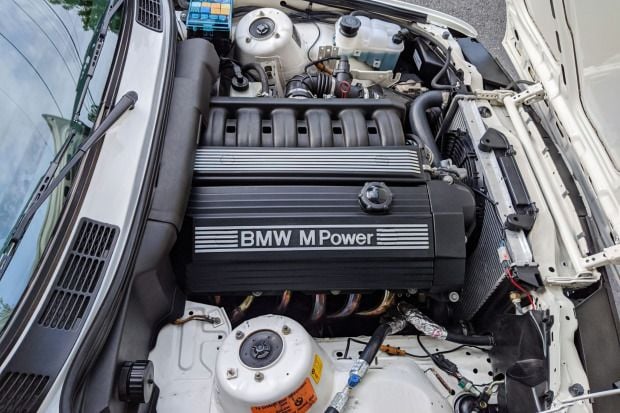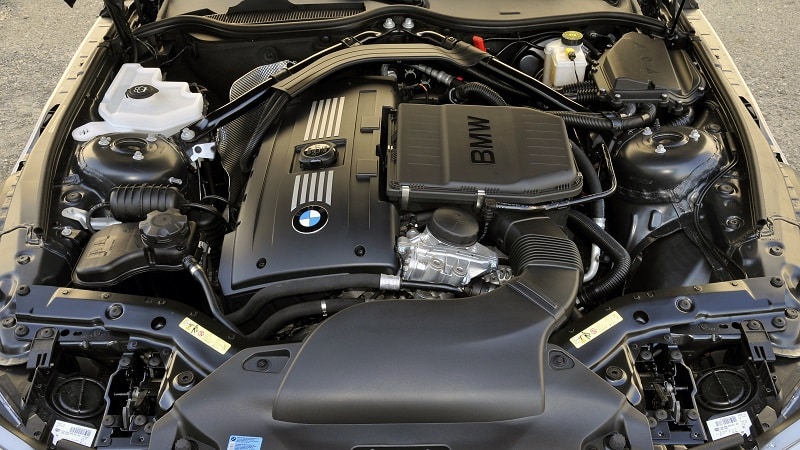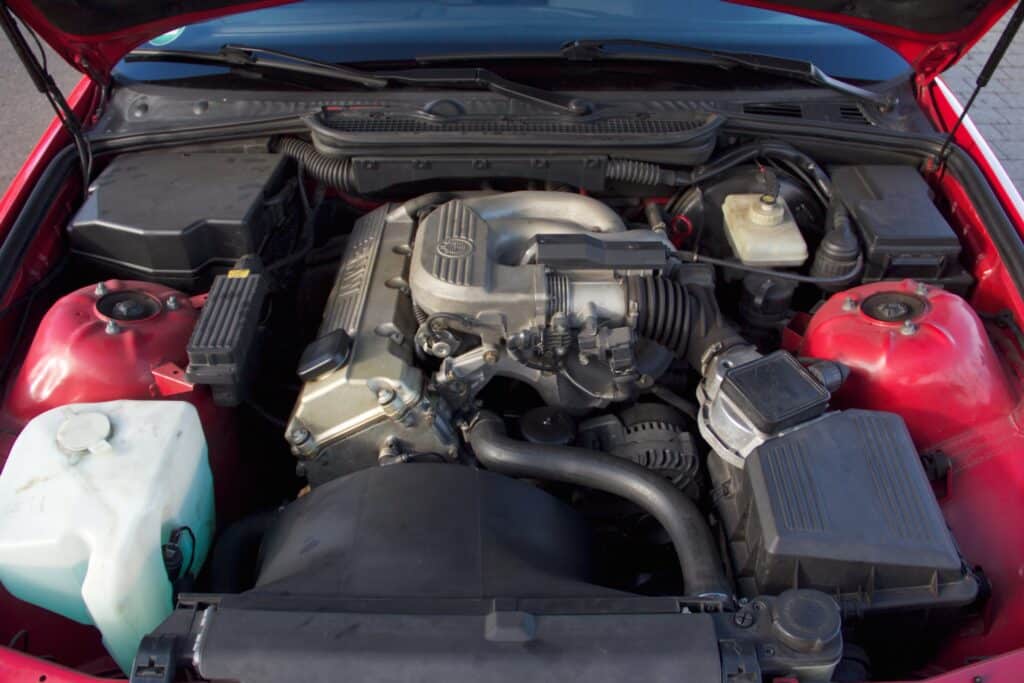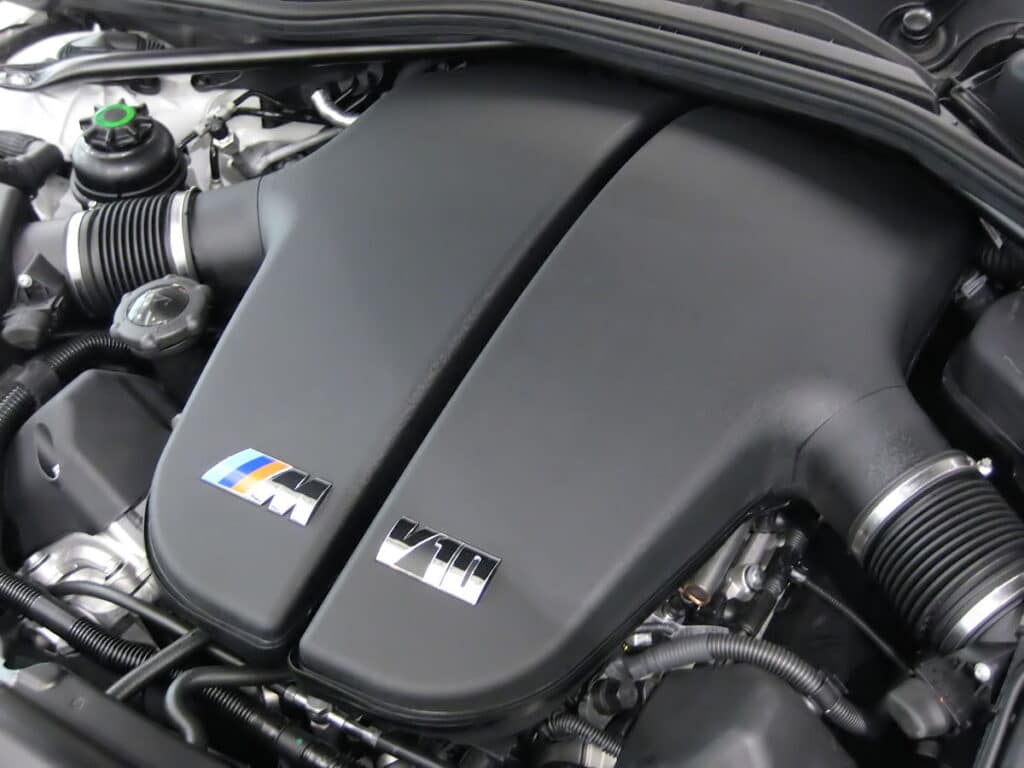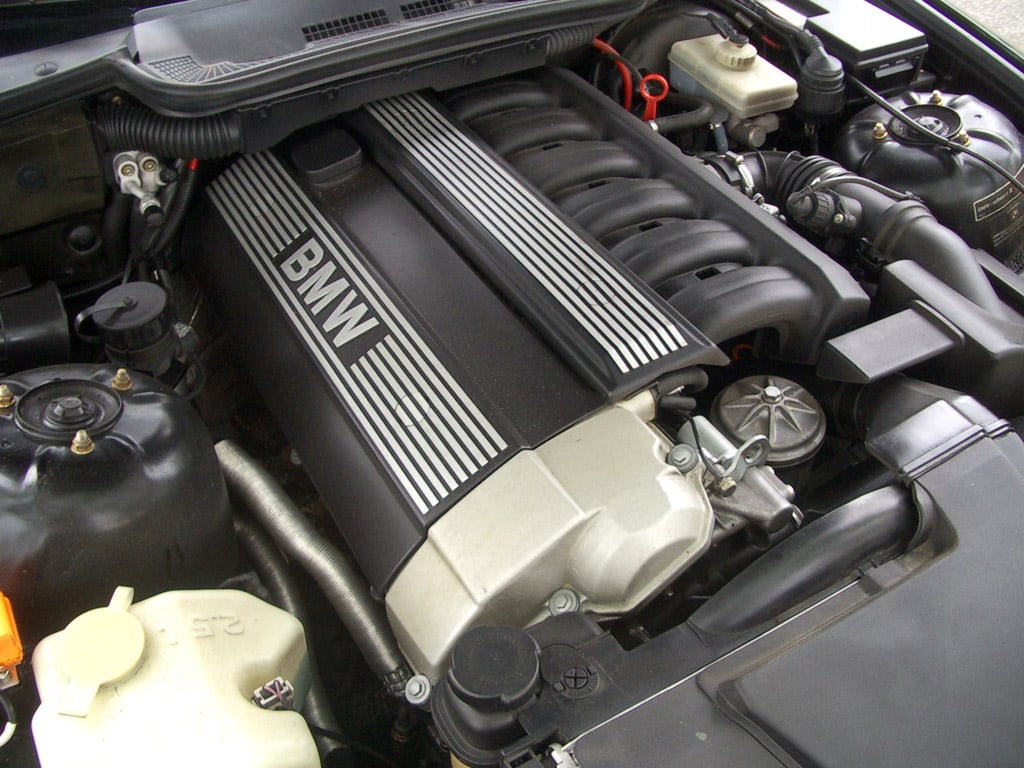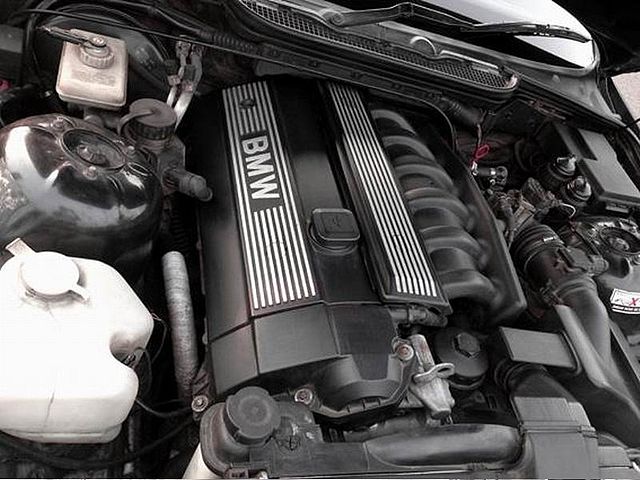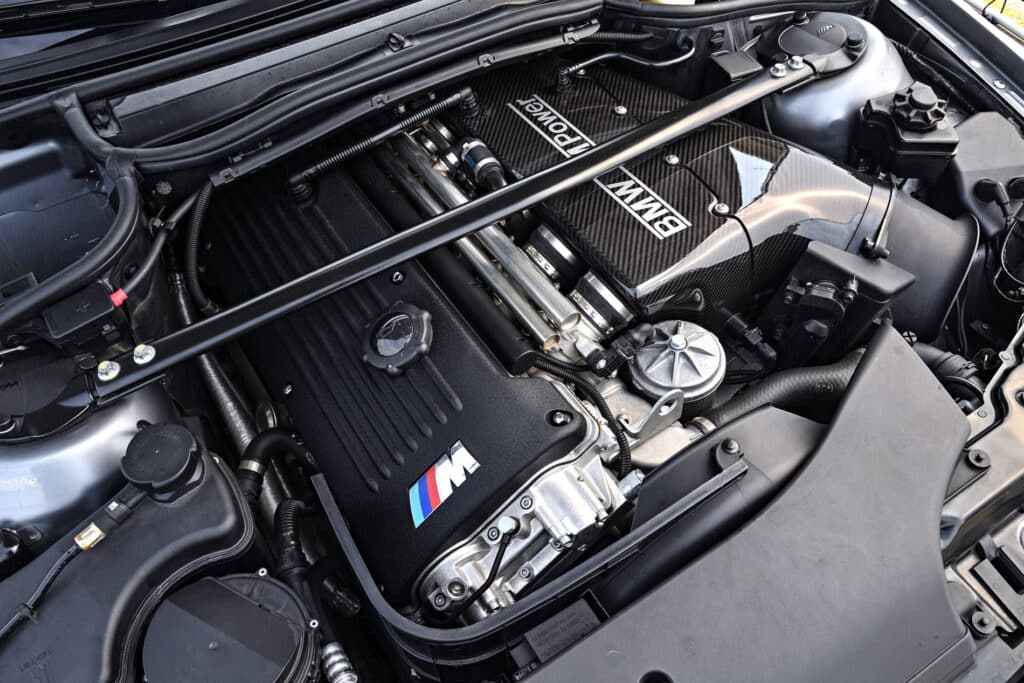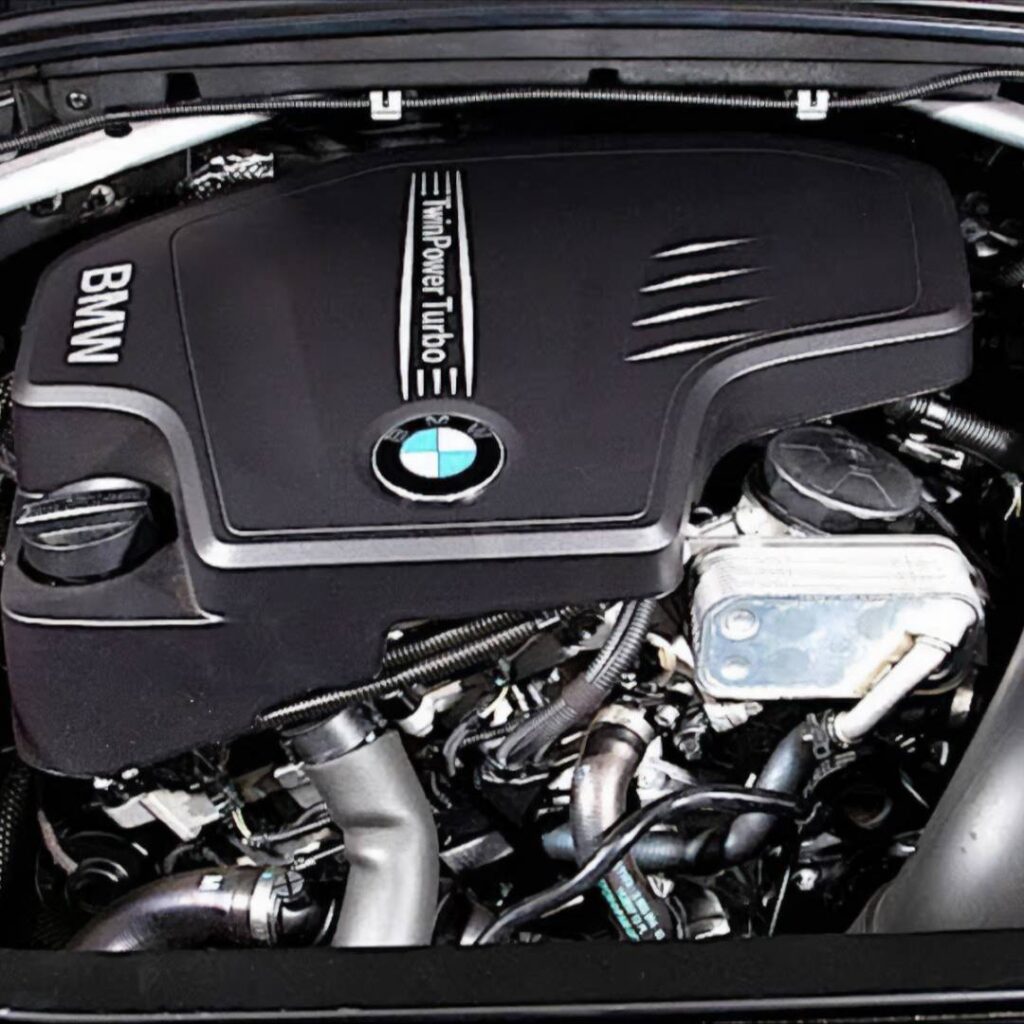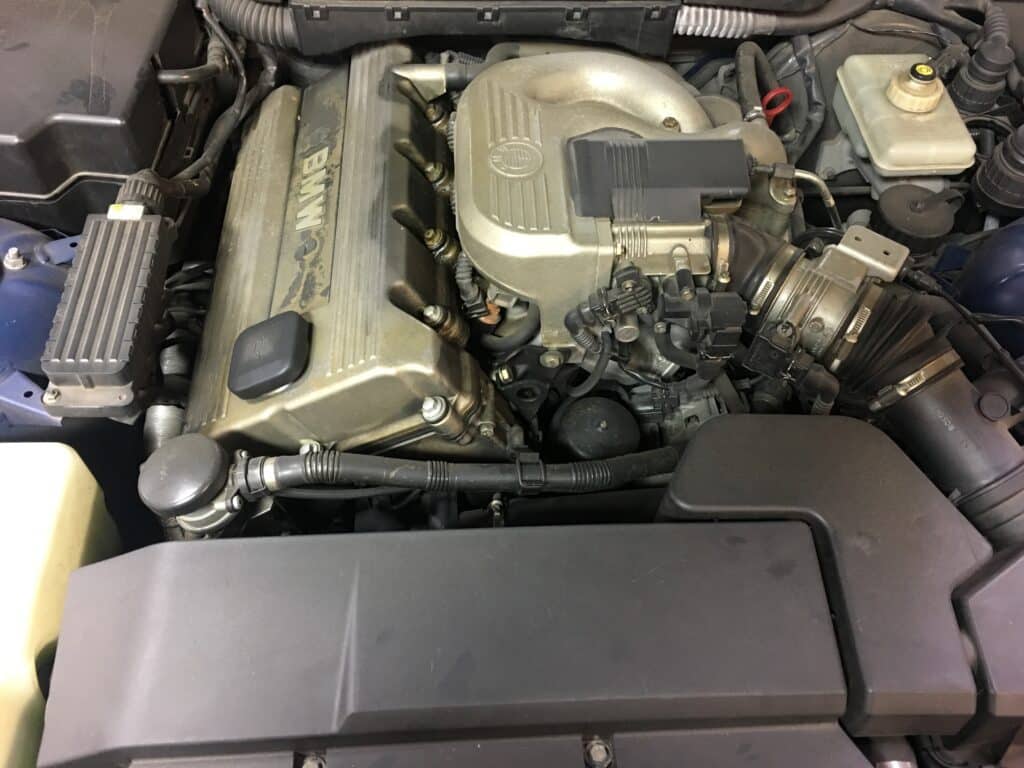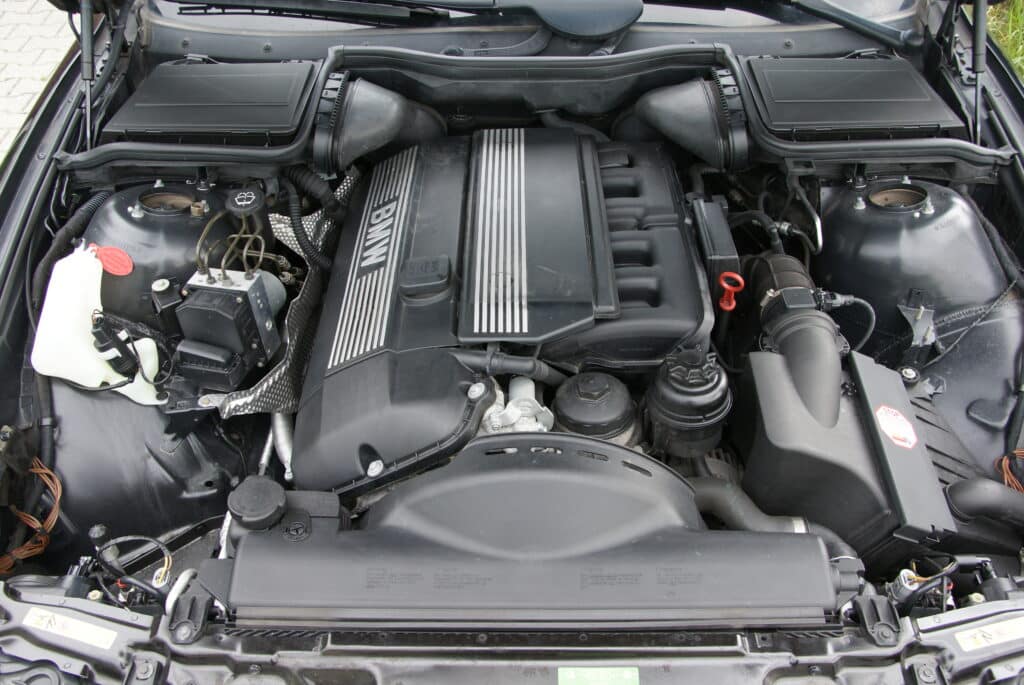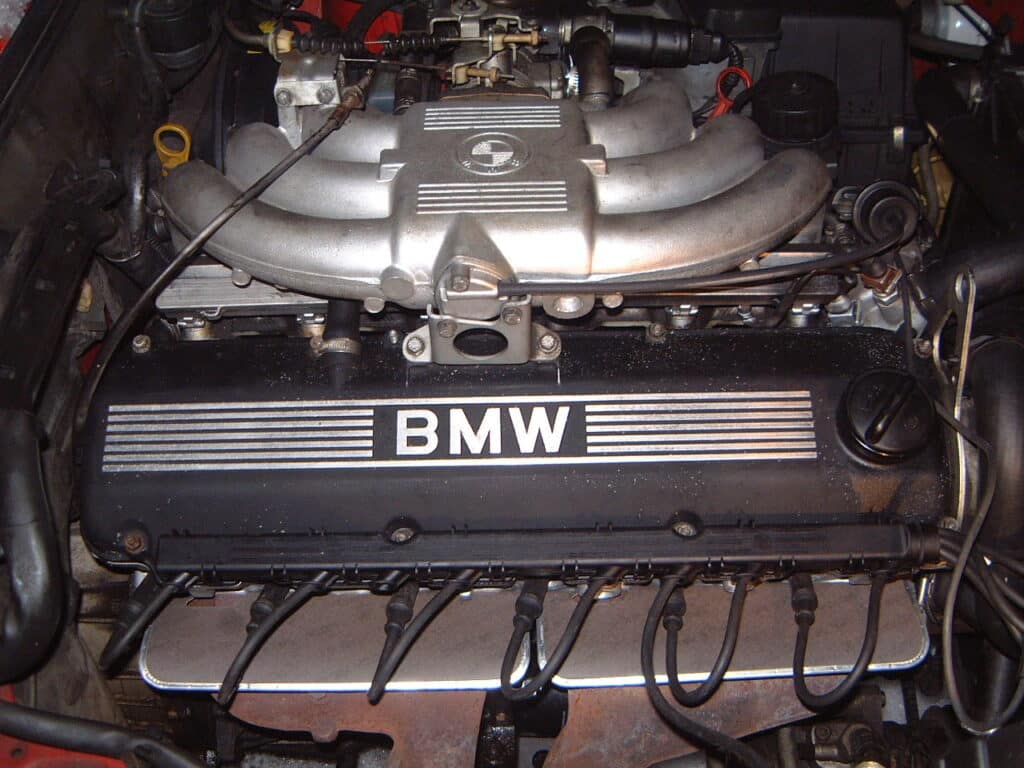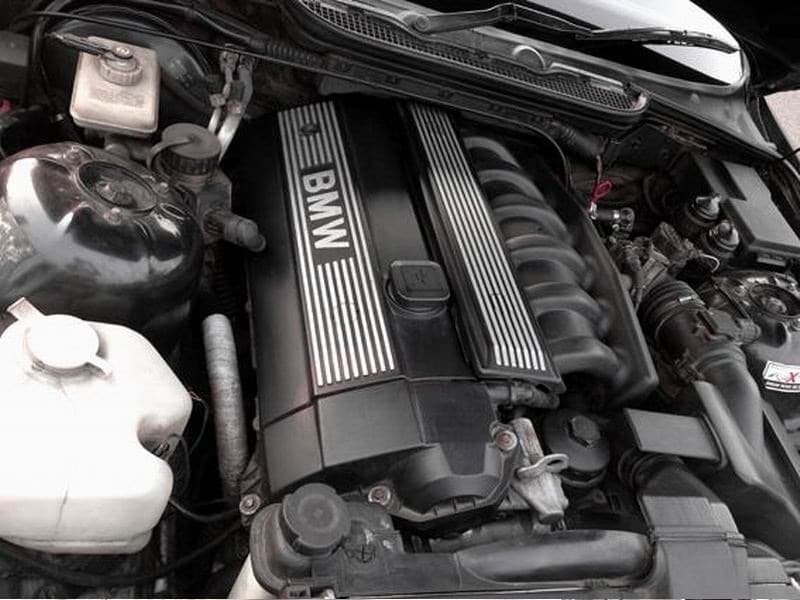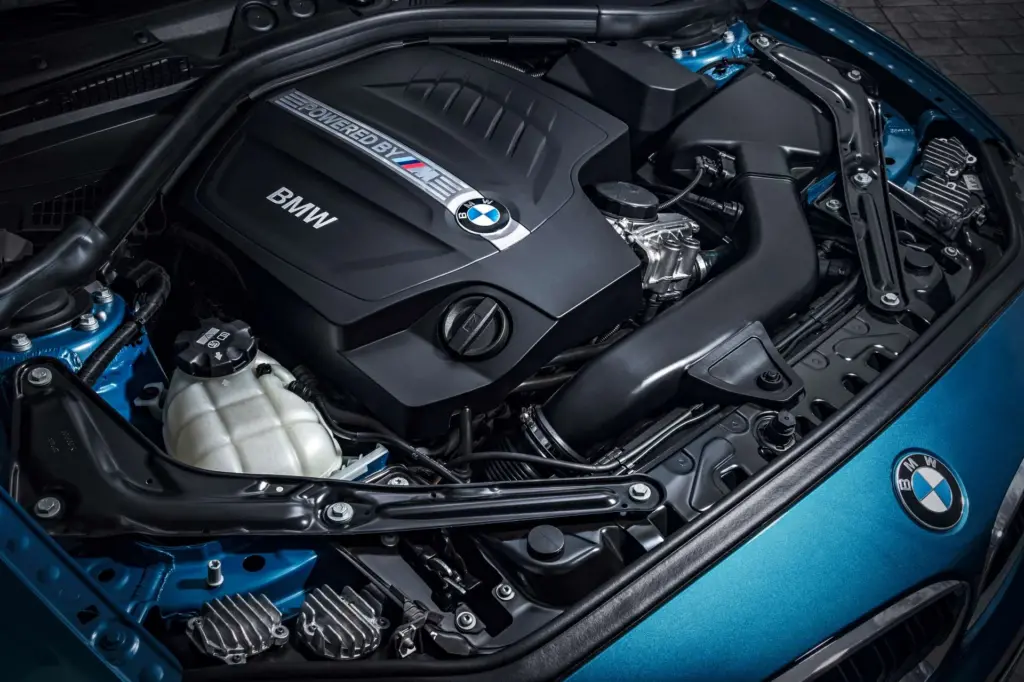The BMW M40B18 is an iconic inline-four gasoline engine that debuted in the mid-1980s as part of the M40 series. Developed to power a range of BMW’s compact and mid-sized vehicles, it followed the brand’s ethos of combining performance with efficiency. With a displacement of 1.8 liters, it struck a balance between the smaller M40B16 and larger BMW powerplants of the era.
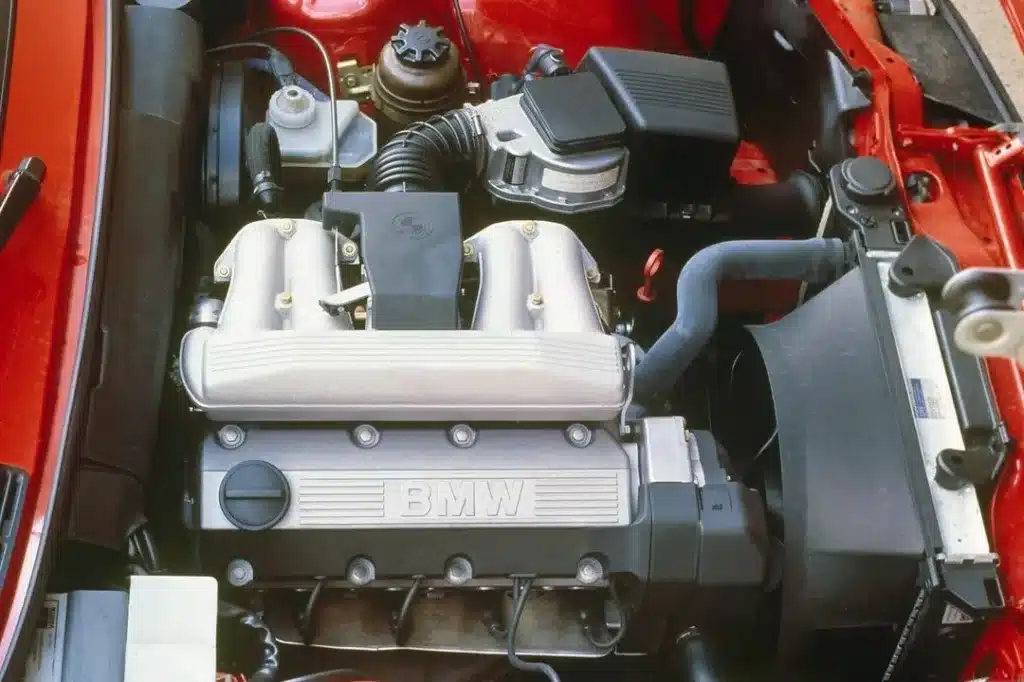
Its introduction marked a transition period for BMW, as it started incorporating more advanced electronics and fuel injection systems to enhance drivability, fuel economy, and emissions performance. The M40B18 was pivotal in setting the stage for the future of BMW’s engine development, paving the way for the sophisticated engines we recognize in BMW’s lineup today.
BMW M40B18 Specs
The BMW M40B18 is a 1.8-liter variant of the esteemed M40 engine lineup, featuring an 84 mm bore and an 81 mm stroke, culminating in a total displacement of 1,796 cc. It is capable of delivering 111 horsepower and 163 Nm of torque. This engine was the heartbeat of popular models like the 1987-1994 E30 318i and the 1992-1993 E36 318i.
Crafted with a durable cast-iron block and an 8-valve single camshaft head, the M40B18 was designed for longevity, requiring no valve adjustment thanks to its hydraulic lifters.
The engine valves measure 42 mm for intake and 36 mm for exhaust. Known for its reliability, the M40B18 typically lasts up to 300,000 km (200,000 miles) or more. However, given the age of vehicles that contain this engine, many have surpassed this milestone and may not operate without issues.
| Specification | Detail |
|---|---|
| Displacement | 1,796 cc |
| Bore x Stroke | 84 mm x 81 mm |
| Cylinder Configuration | Inline-4 |
| Valvetrain | SOHC, 2 valves per cylinder |
| Compression Ratio | N/A |
| Power Output | 111 hp |
| Torque | 163 Nm |
Note: The exact compression ratio detail is not provided here, as it often varied slightly over the production run to comply with changing emissions and performance standards.
The M40B18 engine’s solid design has proven its longevity, often surpassing BMW’s own expectations in terms of durability. It’s not just the figures that tell the story of this engine; it’s also the driving experience it provided in models like the E30 318i and E36 318i, which earned it a fond place in the hearts of BMW enthusiasts.
Throughout its production years, BMW’s M40B18 was a workhorse demonstrating its engineering prowess. It was a powerplant that didn’t just move a car; it created an experience—a symphony of mechanical precision that epitomized the joy of driving.
Even today, these engines can be found purring in classic BMWs, a testament to their enduring design and the care of their owners.
Performance Characteristics
The BMW M40B18 engine, while not the mightiest in BMW’s historical lineup, presented a harmony of efficiency and performance that was praised in its time. With a power output of 111 hp and a torque of 163 Nm, it provided a spirited driving dynamic, especially in the lighter BMW models such as the E30 318i.
This engine’s character is particularly notable in its RPM range, displaying a smooth power delivery that becomes progressively enthusiastic as the revs climb, showcasing BMW’s expertise in creating engines that are both reliable and enjoyable to drive.
The engine management system for the M40B18 was advanced for its time. Utilizing a Bosch Motronic system, it meticulously controlled fuel injection and ignition timing, ensuring optimal performance and fuel efficiency. This precise management system also allowed the M40B18 to meet the stricter emissions standards of its era while maintaining a responsive throttle and stable idle.
Many drivers and fans of the M40B18 engine appreciate its reliability and the classic BMW driving experience it provides. While it may not have had the most impressive power figures, its real-world performance and overall driving satisfaction are what make it stand out.
The engine is known for its smooth, linear power curve and eagerness to rev, contributing to a memorable driving experience.
Fuel Efficiency
The BMW M40B18 engine is recognized for its moderate fuel efficiency, especially when considering its production era. On average, this 1.8-liter engine could achieve a fuel consumption of around 25 to 30 miles per gallon (MPG) in mixed driving conditions. This efficiency was a commendable feat for a petrol engine of its time, reflecting BMW’s commitment to engineering prowess.
Various factors influence the M40B18’s fuel efficiency. Driving habits, such as aggressive acceleration and high-speed cruising, can significantly increase consumption. Regular maintenance, including timely oil changes and air filter replacements, also plays a crucial role in maintaining optimal fuel efficiency.
Below is a table summarizing the average fuel consumption and factors that affect the M40B18’s efficiency:
| Factor | Impact on Fuel Efficiency |
|---|---|
| Driving Habits | Aggressive driving can lead to higher consumption |
| Maintenance | Poor maintenance can decrease efficiency |
| Vehicle Load | Heavier loads can increase consumption |
| Tire Pressure | Under-inflated tires can lead to higher consumption |
| Environmental Conditions | Cold weather can increase consumption |
| Fuel Quality | Lower quality fuel can decrease efficiency |
By understanding and managing these factors, owners of vehicles with the M40B18 engine can optimize fuel efficiency. This not only benefits the driver’s wallet but also contributes to the broader effort of reducing emissions and preserving the environment.
Oil Capacity and Type
The BMW M40B18 engine demands specific oil specifications to maintain its smooth operation and longevity. BMW typically recommends oils that adhere to their Longlife-01 specification for this engine. These oils usually fall within the 5W-30 or 10W-40 viscosity grades, suitable for the varied climates the cars encounter.
The engine’s oil capacity is approximately 4.25 liters, including the filter. For oil change intervals, BMW initially recommended services every 7,500 miles or once a year, whichever came first. However, many enthusiasts and experts suggest more frequent changes, such as every 5,000 miles, to ensure the engine’s long-term health, especially given its age.
| Specification | Detail |
|---|---|
| Recommended Oil Type | Longlife-01 spec (5W-30, 10W-40) |
| Oil Capacity | 4.25 liters or 4.5 quarts (including filter) |
| Oil Change Interval | 7,500 miles (or annually) |
Adhering to these recommendations can help ensure that the M40B18 engine runs efficiently and can help extend the engine’s life. Regular oil changes with the correct oil type are crucial for maintaining engine performance and reliability.
Cooling System
For the BMW M40B18 engine, the cooling system is pivotal in maintaining optimal operating temperatures and ensuring the engine’s longevity. BMW recommends using a coolant that meets their specific G11 or G12 specifications. These are ethylene glycol-based coolants with corrosion inhibitors that are suitable for aluminum engines.
The cooling system capacity for the M40B18 engine is approximately 7.0 liters (7.4 quarts). As for maintenance, it is typically advised to change the coolant every two to three years or more frequently if the vehicle operates in harsh conditions.
Timing System
The BMW M40B18 engine is equipped with a timing belt, which is responsible for synchronizing the crankshaft and camshaft rotations, ensuring that the engine’s valves open and close at the correct times during the intake and exhaust strokes.
BMW’s official recommendation for the timing belt replacement on the M40B18 engine is typically every 60,000 miles or every four years, whichever comes first.
However, due to the critical nature of the timing belt and the potential damage that can occur if it fails, many mechanics and BMW specialists advise a more conservative interval of 40,000 to 50,000 miles. Regular inspection of the timing belt for signs of wear, such as cracks or fraying, is also essential for preventative maintenance.
Engine Firing Order and Cylinder Layout
The firing order of an engine is pivotal to its balance, smoothness, and overall performance. In the case of the BMW M40B18, the firing order is set to 1-3-4-2. This sequence is engineered to balance the engine’s power delivery and minimize vibration, leading to a smoother running engine and enhanced driving experience.
This precise arrangement ensures that power strokes are evenly distributed across the engine cycle, contributing to the engine’s balance and reducing stress on the crankshaft. This optimization is one of the reasons why BMW engines, including the M40B18, are known for their smooth operation and durability.
Spark Plugs and Ignition System
For the BMW M40B18 engine, using the correct spark plugs is essential for optimal engine performance and efficiency. BMW typically recommends high-quality nickel or platinum spark plugs that are specifically designed for use with the M40 engine series.
The spark plug gap setting is also crucial, and for the M40B18, it is typically set between 0.7 to 0.9 mm. This precise gap ensures that the spark plug fires correctly, allowing for efficient combustion and smooth engine operation. Always consult the vehicle’s manual or a BMW specialist for the most accurate specifications for spark plugs and their gap settings.
BMW M40B18 Engine Problems And Reliability
All the problems you can face are similar to the BMW M40B16 engine.
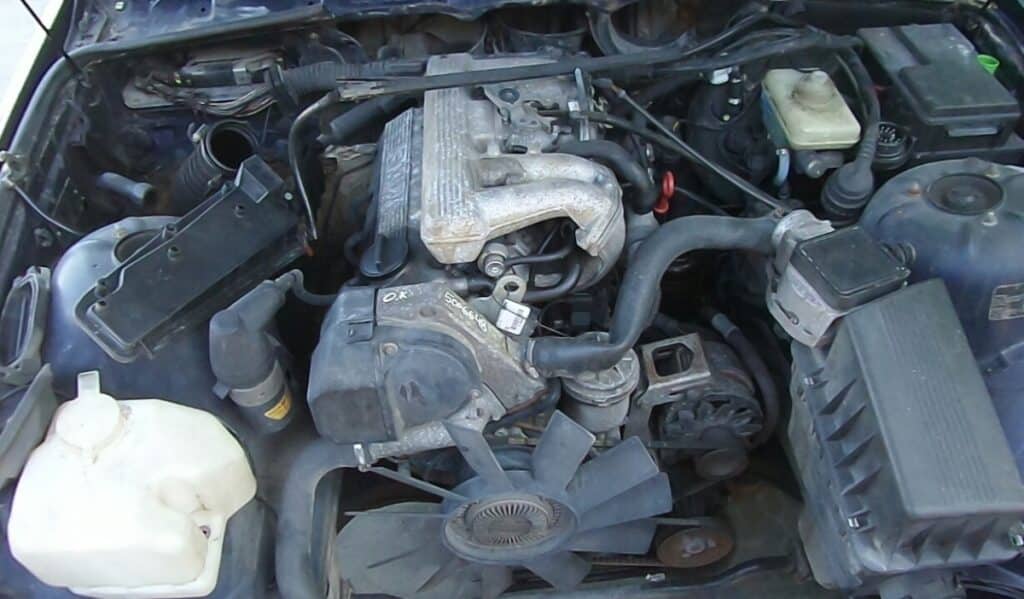
The BMW M40B18 engine, while generally reliable, has several known issues that owners should be aware of. One common problem is wearing a timing belt. If the timing belt fails, it can cause significant engine damage. It’s recommended to replace it more frequently than the manufacturer’s guidance—every 40,000 to 50,000 miles is prudent.
Another issue is related to the valve seals, which can deteriorate over time, leading to oil leaks and burning. This typically manifests as blue smoke from the exhaust on startup. Replacing the valve seals is the solution here.
The engine may also suffer from idle instability and stalling. This can often be due to a faulty idle control valve or vacuum leaks. A thorough inspection of the intake system and replacement or cleaning of the idle control valve can remedy this issue.
Electrical problems with the engine sensors can lead to poor running conditions. Owners should check the engine control unit (ECU) for stored fault codes, which can guide troubleshooting.
Water pump failures are another concern. A failing water pump will often leak coolant and can lead to engine overheating. Prompt replacement of the water pump is essential for preventing further engine damage.
Regarding the cooling system, the radiator and hoses should be inspected regularly for leaks or degradation. Any issues with the cooling system should be addressed promptly to prevent the engine from overheating.
Finally, general wear and tear on engine components such as bearings, gaskets, and seals can lead to various issues as the engine ages. Regular maintenance and prompt replacement of worn parts can help mitigate these problems.
For troubleshooting, always start with a diagnostic check to identify any fault codes that can pinpoint specific issues. From there, address the most common problems by inspecting the timing belt, valve seals, idle control valve, and the cooling system. Maintaining a proactive maintenance schedule can prevent many of these issues from becoming serious.
Engine Modifications
The BMW M40B18 engine, while reliable in stock form, offers some potential for modifications. Popular upgrades include:
- ECU tuning: Custom remapping of the engine’s ECU can result in better throttle response and modest gains in power and efficiency.
- Intake and exhaust: Aftermarket air intakes and exhaust systems can improve airflow, which may help the engine breathe better, thus increasing performance.
- Camshaft upgrade: Installing a performance camshaft can significantly improve engine power, especially when combined with other modifications.
- Ignition system: Upgrading to a higher-quality ignition system can ensure a better spark, leading to more efficient combustion and slight performance improvements.
- Lightweight pulleys: Replacing stock pulleys with lightweight versions reduces rotational mass, freeing up power.
However, it’s important to note that modifications can impact the reliability and longevity of the engine. For example, aggressive ECU tuning can stress the engine, and aftermarket components may not have the same longevity as OEM parts.
Always consider the trade-offs between performance gains and potential wear on the engine. It’s advisable to consult with a BMW specialist before undertaking any significant modifications.
Maintenance and Service
Maintaining the BMW M40B18 engine involves adhering to a regular maintenance schedule and being attentive to the engine’s long-term service needs. The key to ensuring the engine’s performance and longevity is consistent upkeep, which includes:
- Oil Changes: Every 5,000 to 7,000 miles using the recommended oil weight and grade.
- Coolant Flush: Every two years or 24,000 miles to prevent corrosion and buildup.
- Timing Belt Replacement: Approximately every 50,000 miles to avoid catastrophic engine failure.
- Air and Fuel Filter Replacement: Every 15,000 miles to ensure clean air and fuel flow.
- Spark Plug Replacement: Roughly every 30,000 miles to maintain optimal ignition.
- Valve Clearance Check: While hydraulic lifters self-adjust, it’s wise to check them periodically, especially in high-mileage engines.
In terms of long-term service:
- Regular Inspections: Periodic inspections by a qualified mechanic can catch issues before they escalate.
- Gasket and Seal Replacements: Aging engines will benefit from new gaskets and seals to prevent leaks.
- Cooling System Overhaul: Consider replacing the water pump, thermostat, and radiator hoses as part of a cooling system overhaul every 100,000 miles.
- Suspension and Brakes: While not engine-specific, the engine’s performance is impacted by the car’s overall condition, so keep these in check.
Keeping detailed service records can also help diagnose problems early, ensuring the M40B18 engine runs smoothly for years to come.

